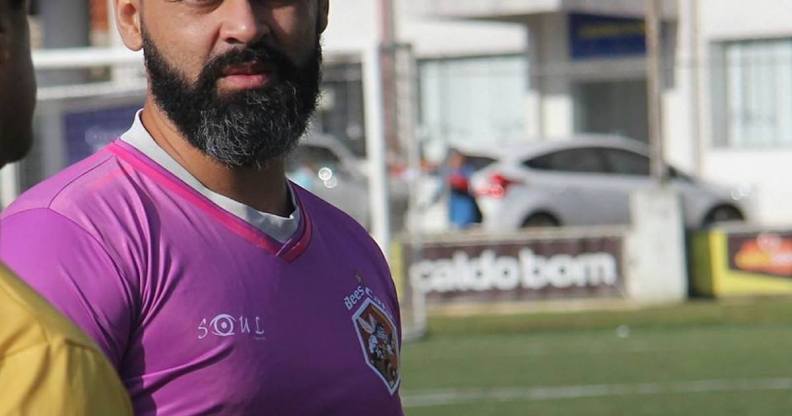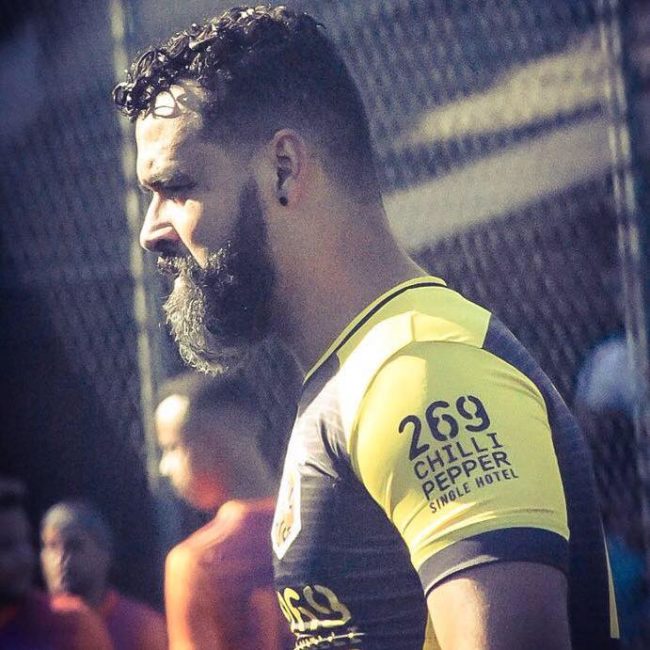Gay Brazilian footballer returns to sport after quitting

Douglas Braga has returned to football after he quit 15 years ago because he’s gay. (Douglas Braga de Oliveira/Facebook)
A Brazilian sportsman is making a return to football after he quit because he is gay.
Douglas Braga moved to Rio de Janeiro when he was aged 12, with the dream of becoming a professional footballer, reports the BBC.
He had played for the third division club Madureira for six years.
At the age of 18 he was signed by Botafogo, one of Rio’s top clubs, which had recently topped the Brazilian league.
“It was a choice that either you’re yourself, or you’re a footballer. It just wasn’t possible to be both.”
—Douglas Braga
Footballer Douglas Braga: I quit football because I’m gay
But, around the same time, Braga started to realise that he is gay.
“I started discovering my sexuality,” he told the BBC. “I started seeing that I had desires and that it was for men.”
“It was a choice that either you’re yourself, or you’re a footballer. It just wasn’t possible to be both.”

Braga now plays for gay amateur football club BeesCats. (Douglas Braga de Oliveira/Facebook)
He quit football aged 21.
Homophobia remains a big barrier for football players and fans in Brazil.
There is still no openly gay footballer in the top tiers of Brazilian football.
Fans regularly use chant “viado” at the opposing team at matches, which translates as “faggot.”
For Braga, he couldn’t come out as gay and play football in such a hostile environment.
“That day that I decided not to play, I cried so much,” he told the BBC. “I walked around for hours crying.”
No openly gay footballers in top tiers of Brazilian football
However, 15 years on, Braga has joined a gay amateur club called BeesCats in Rio and is playing football again.
The club was founded by gay footballer and Braga’s teammate André Machado, who also started LGBT+ tournament Champions LiGay last year.
Braga’s story is the subject of a BBC Radio 4 report called The Brazilian Footballer Who Never Was by journalist David Baker.
Meanwhile, Brazil’s LGBT+ community is already concerned about the country moving backwards after homophobic new president Jair Bolsonaro took up his role on January 1.
And it appears the government has wasted no time in removing LGBT+ issues from its agenda.
Brazilian newspaper O Globo recently reported that the ministry overseeing human rights, rebranded as the Ministry of Women, Family and Human Rights, has failed to make any explicit reference to LGBT+ rights in listing its priorities and internal structures.
News of the exclusion sparked debate on social media.
LGBT+ activist Daniela Mercury wrote in a tweet: “The constitution protects us. We as a society need to demonstrate against the extinction of public policies for the LGBT+ population.”
Brazil counts one of the world’s highest murder rates for LGBT+ people, but Bolsonaro has repeatedly disregarded the need for measures against homophobia and transphobia.

